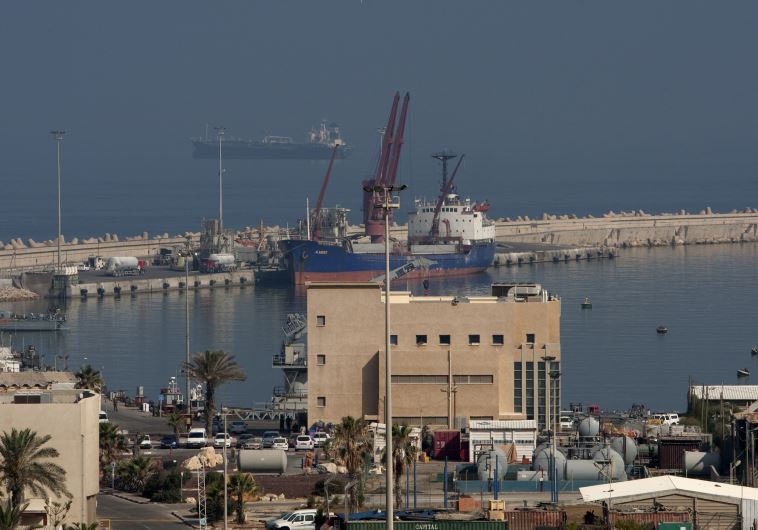Private Ashdod port building ahead of schedule, says ports company
Transportation Minister Israel Katz toured the building site of the port on Tuesday, commenting on the impressive progress.
 A general view shows the Israeli army navy port of Ashdod on May 31, 2010.(photo credit: MENAHEM KAHANA / AFP)Updated:
A general view shows the Israeli army navy port of Ashdod on May 31, 2010.(photo credit: MENAHEM KAHANA / AFP)Updated: